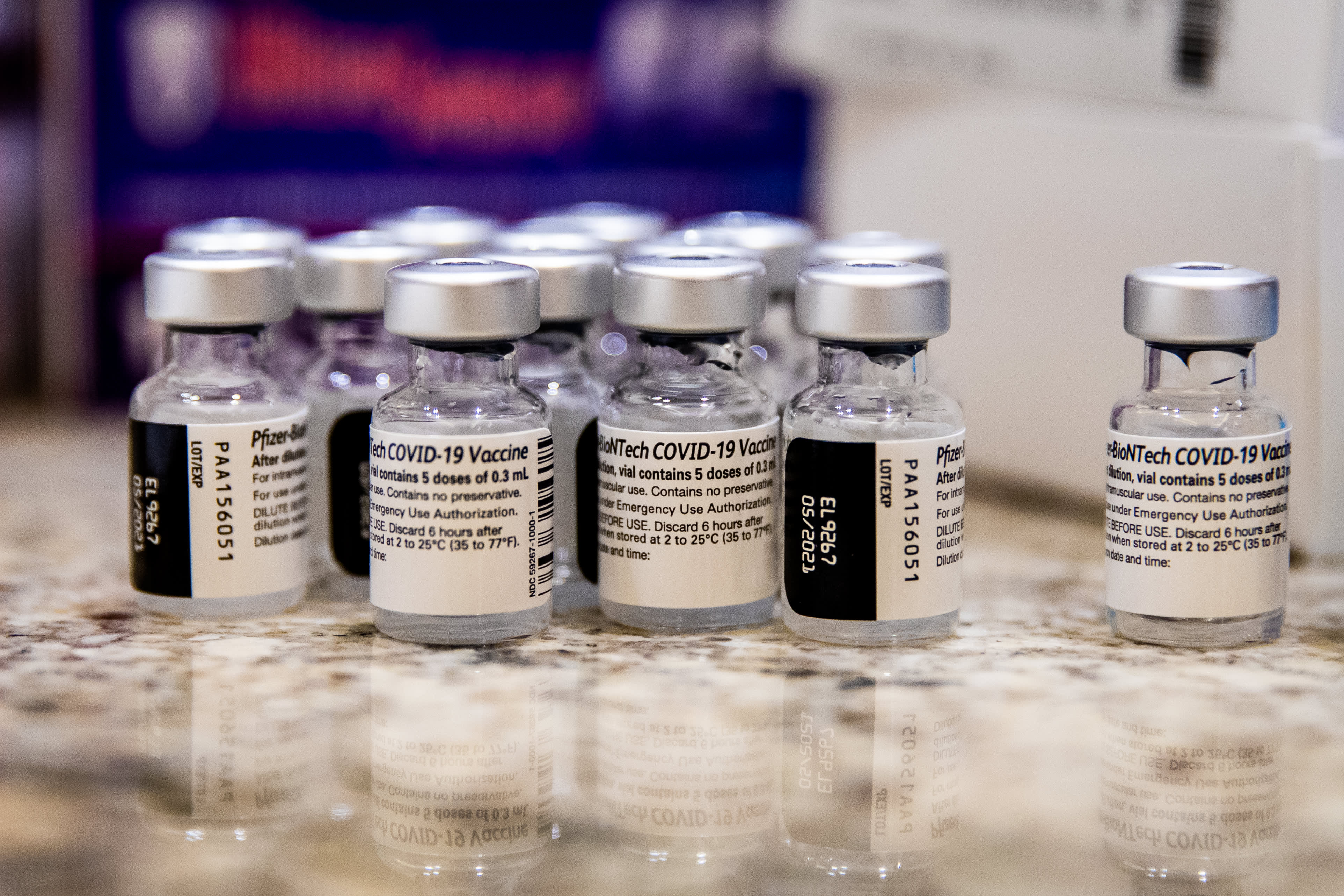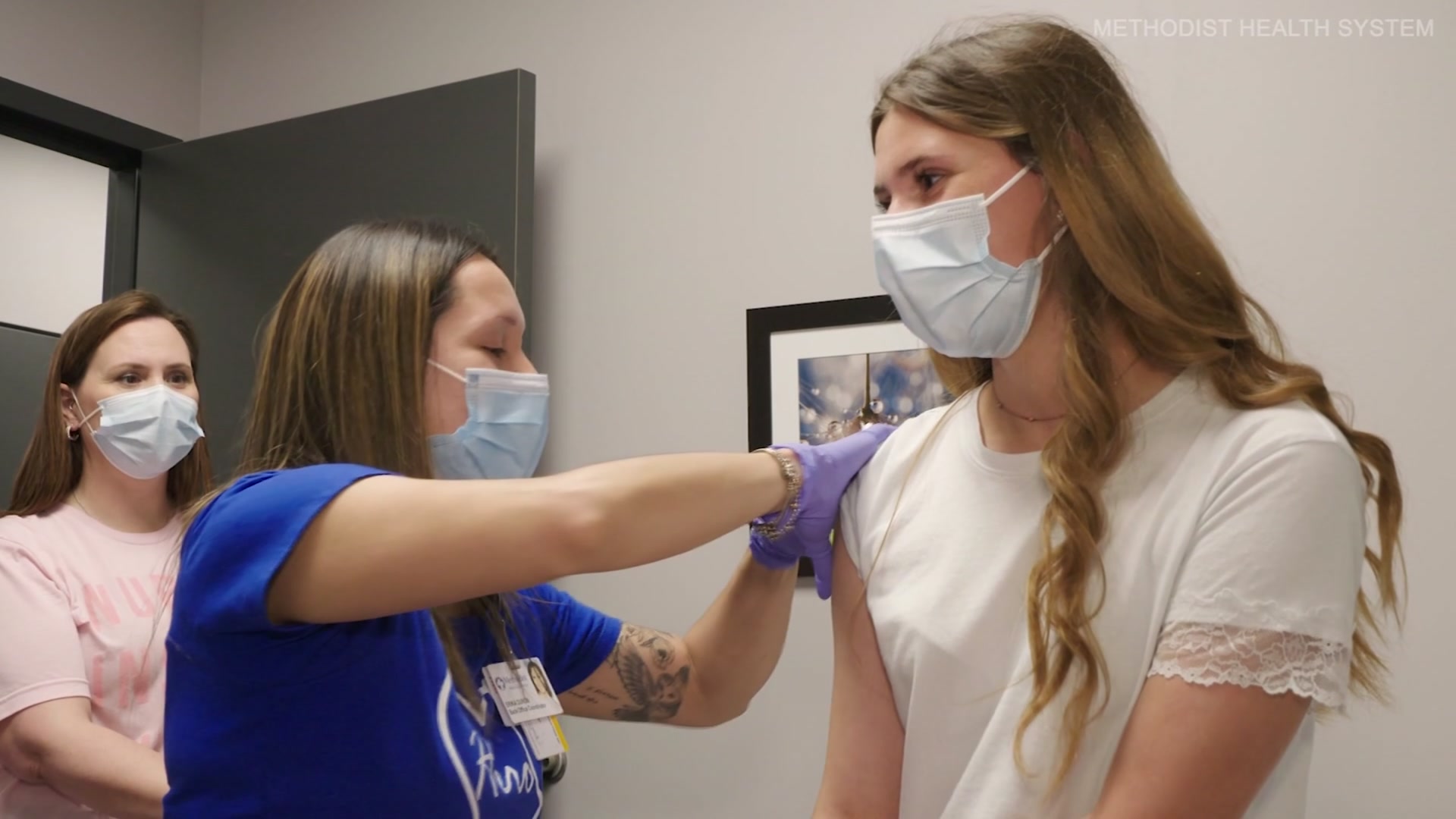The U.S. Food and Drug Administration has authorized emergency use of Pfizer's COVID-19 vaccine in children ages 12 to 15, but when could children under 12 be eligible for the vaccine?
According to experts, those under 12 likely won't be able to receive the COVID vaccine until later this year or early next year.
Both Pfizer and Moderna have begun U.S. studies in children ages 6 months to 11 years. Those studies explore whether babies, preschoolers and elementary-age kids will need different doses than teens and adults. Dr. Bill Gruber, a Pfizer senior vice president who’s also a pediatrician, told the Associated Press that Pfizer expects its first results in the fall.
"Both Pfizer and Moderna currently have studies that are ongoing for vaccine down to six months so maybe into next year we may actually see vaccine for our people less than 12 years of age, so stay tuned for that and keep looking out," Dr. Candice Robinson, medical director for the Chicago Department of Public Health, said.
Chicago's top doctor said results could come as early as September.
"There are studies going on right now for younger children and, in fact, Pfizer has indicated that they expect possibly by September," CDPH Commissioner Dr. Allison Arwady said. "There may be a different... you know, they may be able to put forward the request for authorization for children as young as 2. We may see different dosing for younger children, I don't know. Again, they're studying different doses seeing what may be needed."
So what can parents do in the meantime?
According to new figures from the American Academy of Pediatrics, COVID-19 infections in children are remaining stubbornly constant.
The data showed that children are now making up 22% of COVID-19 infections and they are about 1.2 to 3.1% of hospitalizations.
At least 296 children have died from COVID-19 in the U.S. alone and more than 15,000 have been hospitalized, according to a tally by the AAP.
Feeling out of the loop? We'll catch you up on the Chicago news you need to know. Sign up for the weekly Chicago Catch-Up newsletter.
"We've had kids hospitalized since the beginning of the pandemic, some who have been quite ill," Moore said. "We also in June of this past year, started to see the inflammatory syndrome that we've mentioned before... and those kids can be very sick down to very young ages, down to toddler ages."
Experts recommend parents continuing to follow public health guidelines for unvaccinated people.
"In the meantime, you know, there will still be some protective things that you will need, the children will need to continue to do because they can't get vaccinated," Robinson said. "So still make sure they're washing their hands, wearing their masks, social distancing in the appropriate settings and following the CDC guidance for persons who are unvaccinated."
Health officials have said vaccinating those who are eligible around the children can also help keep them protected.
"If you can get all the adults vaccinated around the kids risk really goes down a lot, " Arwady said. "And then assuming teenagers coming here too - I don't know if you've got an older brother or cousin, etc. - but like, you know, the best way to be protected is to be surrounded by a lot of people who are vaccinated themselves. And then as our case numbers go down here, right, like the risk will go lower and lower and lower."
Arwady noted that vaccinating all who are eligible can offer some flexibility for children.
For example, unvaccinated children can spend time indoors without a mask in a room full of vaccinated adults, she said.
"The CDC has said as long as all of the adults are fully vaccinated, there can be children - particularly if we're talking about one child here, we're not talking about pulling together a whole ton of unrelated children - who can be around and unmasked. Getting all of the adults vaccinated, most important thing at this point. Especially the youngest children, less likely to get COVID, less likely to get seriously ill if they did, and very unlikely in a setting of fully vaccinated adults for there to be a concern."
What about infants?
Arwady said infants are an age group least likely to be vaccinated.
"Even when vaccines become approved for younger children, and certainly taking care around anybody who's not able to be vaccinated, the youngest children in particular, is important," she said.
"The most important thing is that you yourself are fully vaccinated, you know," she continued. "I personally would be comfortable if I had a nanny or someone taking care of my child who was fully vaccinated, two weeks post that second dose, taking care of the child without a mask, assuming that you of course did not have symptoms or did not have other concerns, had not known that you were exposed to COVID."



